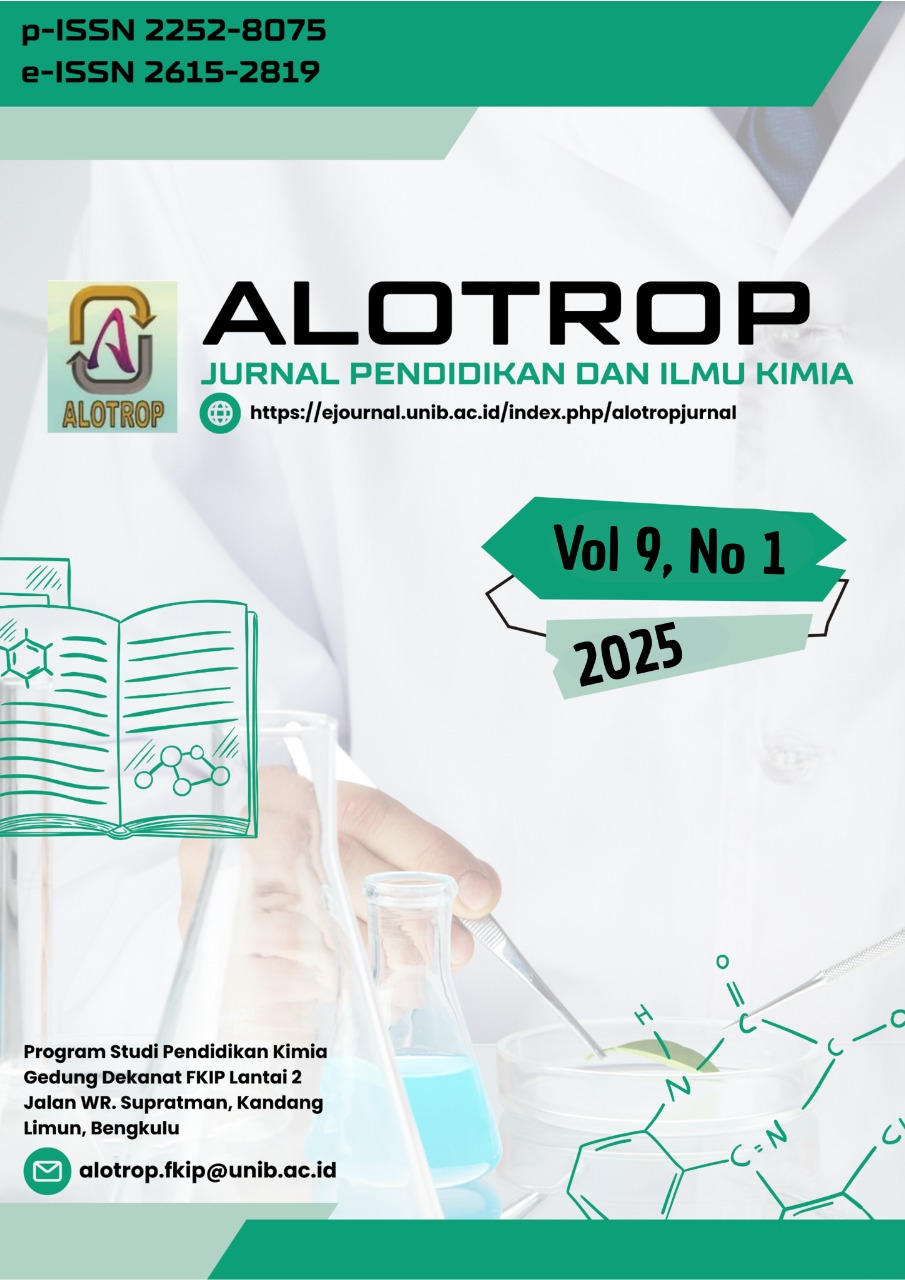Main Article Content
Abstract
Development of Interactive Learning Multimedia Based on Android on Electrolyte and Non-Electrolyte Solution Materials]. This research aims to find out the level of eligibility and response of learners to android-based interactive learning multimedia on electrolyte and non-electrolyte solution materials developed. The research was conducted in March-June 2021 at Bengkulu University and State High School 3 Bengkulu City. The development model used, namely the 4-D (Four-D) model from Thiagarajan which is limited to the developing stage. The sample used in the small-scale trial was one class XI MIPA 2 totaling 36 people. Research data is obtained from the validation questionnaire of material experts and media experts as well as the response questionnaire of learners. From the results of the research obtained the level of feasibility of interactive learning multimedia in material aspects by 89.4% and media aspects by 94.2%, so that interactive learning multimedia can be categorized as very valid. The results of learners' responses to multimedia interactive learning in small-scale trials obtained a percentage of 81.52% with very interesting categories. The results of this study show that android-based interactive learning multimedia that has been developed is very feasible for use in the learning process.
Keywords: Interactive Learning; Multimedia; Android; Electrolyte and Non-Electrolyte Solution
Article Details
Copyright (c) 2025 Anisa Putri, Elvinawati Elvinawati, Salastri Rohiat

This work is licensed under a Creative Commons Attribution-ShareAlike 4.0 International License.
Authors who publish with this journal agree with the following terms:
- Authors retain copyright and grant the journal right of first publication with the work simultaneously licensed under a Creative Commons Attribution License that allows others to share the work with an acknowledgment of the work's authorship and initial publication in this journal.
- Authors are able to enter into separate, additional contractual arrangements for the non-exclusive distribution of the journal's published version of the work (e.g., post it to an institutional repository or publish it in a book), with an acknowledgment of its initial publication in this journal.
- Authors are permitted and encouraged to post their work online (e.g., in institutional repositories or on their website) prior to and during the submission process, as it can lead to productive exchanges, as well as earlier and greater citation of published work (See The Effect of Open Access).
- This work is licensed under a Creative Commons Attribution-ShareAlike 4.0 International License.
